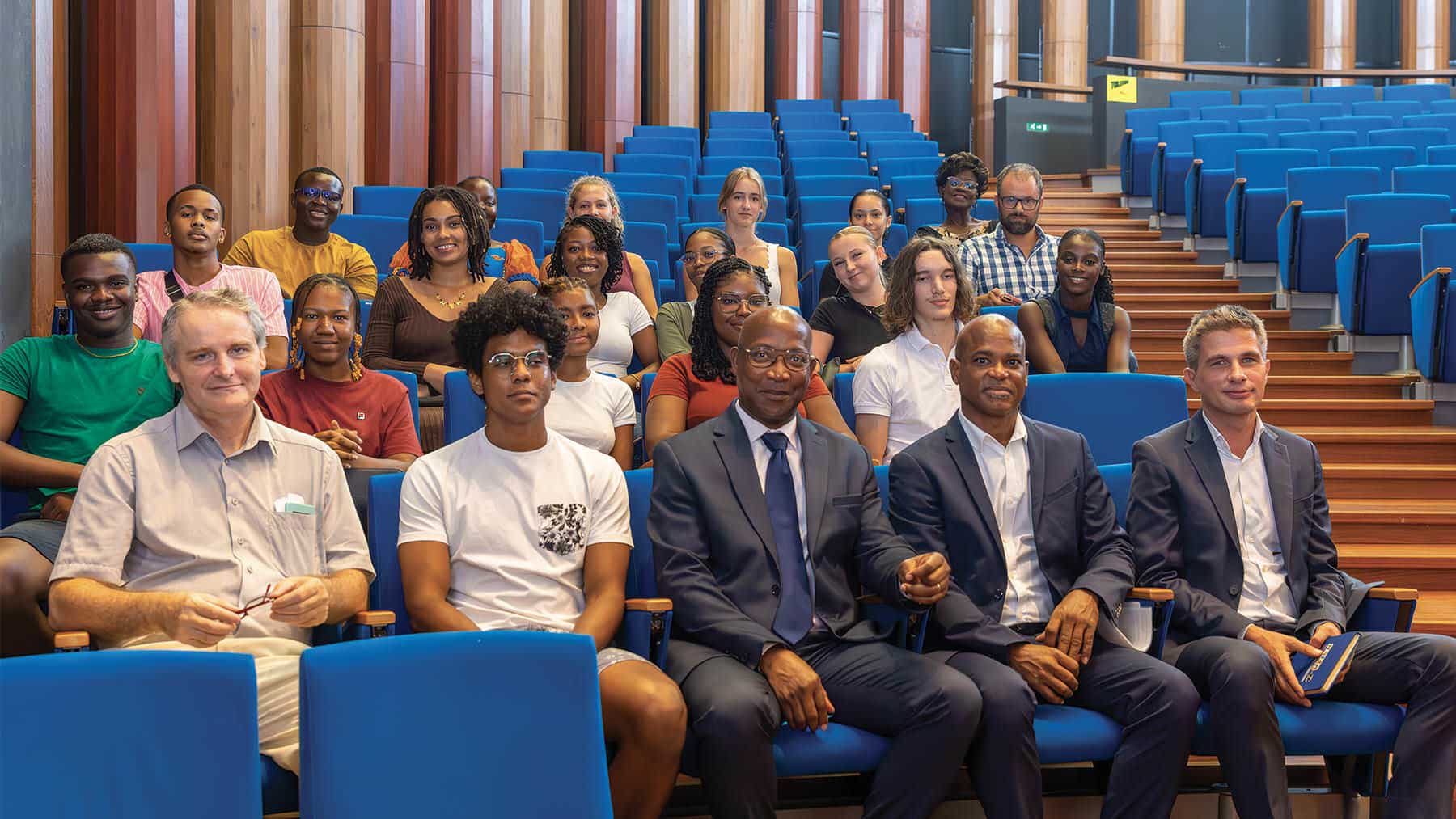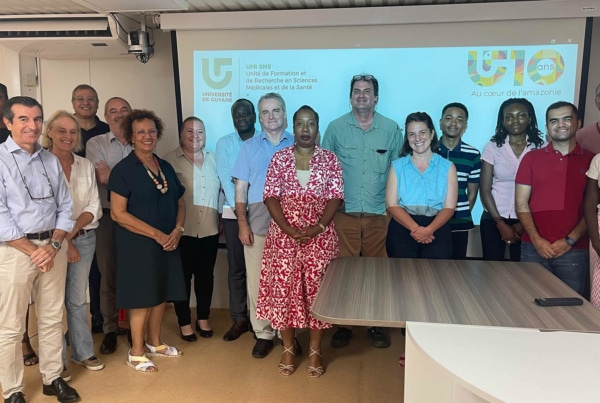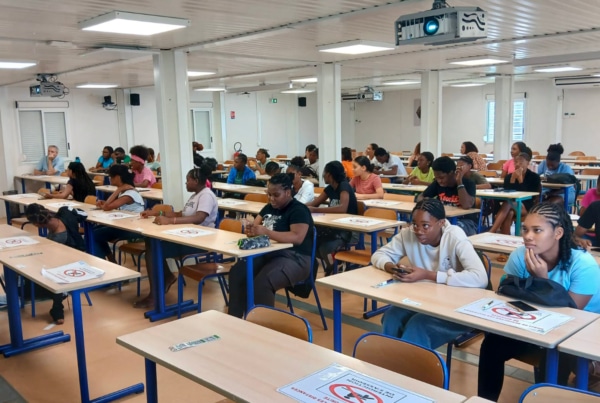
Thursday 7 September 2023 marks an important date in the history of the University of Guyana and, more broadly, in the history of medicine in the region. A class of nineteen students had the honour of celebrating the opening of the second year of medicine (DFGSM2) at the University of Guyana.
This new intake of medical students marks the start of the transition to full medical school in French Guiana. In fact, this class is the first to be able to complete a second year of medicine in French Guiana and will be the first to be able to continue their studies in their third year in the country.
SETTING UP A COMPLETE FIRST CYCLE OF MEDICAL STUDIES: A NECESSITY FOR THE REGION
Given the situation in French Guiana, the opening of a full first cycle of medical school in September 2023 was justified. The population of French Guiana is growing rapidly, while the density of doctors is very low compared with other French regions. Guiana is located in the heart of the Amazon, and it is important to have access to information on tropical diseases in order to improve healthcare provision.
The opening of the first complete cycle will make it possible to increase the amount of time medical students spend working in French Guyana. This training time spent in French Guyana should eventually encourage them to return and practise in the region. The creation of the first cycle of medicine will also encourage the appointment of new university hospital staff, who will contribute to the development and diversification of healthcare training and the development of medical research focused on the region's health issues. These new resources will help to expand the range of specialist care available in French Guyana's hospitals.
In September 2024, the third year of medicine (DFGSM3) will open, formalising the creation of a complete first cycle of medicine in French Guyana. This will play an active role in the development of Guyana's healthcare system. The establishment of a complete first cycle of medicine will authorise the University to create its Health Training and Research Unit (UFR), which is a prerequisite for the creation of the CHRU.




